If you love cheese and follow a gluten-free diet, you may be wondering which types of cheese are safe for you. Find out in this post if cheese is gluten-free and what to look out for.
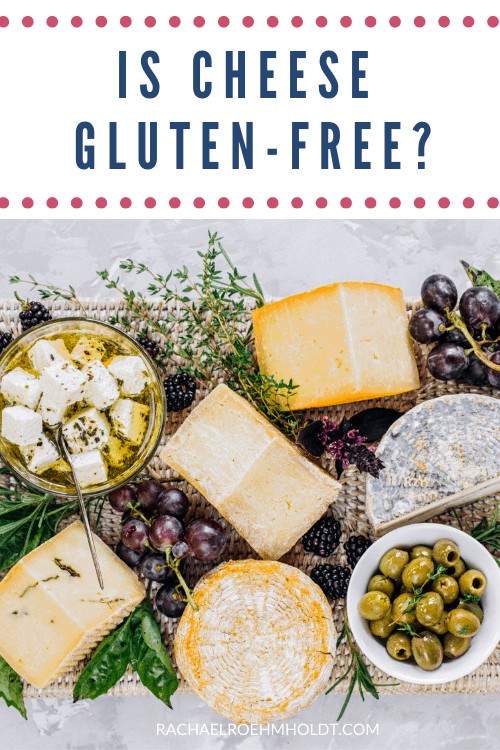
Note: I am a proud Amazon, Chomps, MunkPack, and Thrive Market affiliate and am happy to recommend their service and products to you. Please know that as an affiliate, I may receive a small commission on the products you purchase after clicking through my links. For more info, please see my disclosure policy here.
Cheese is a mainstay in the American diet. You can’t go to any restaurant or grocery store without finding something with cheese in it.
It’s on pizza, in sandwiches, in pasta, sprinkled on top of just about anything and everything, and is often enjoyed simply on its own as a snack.
While cheese is super common, if you follow a gluten-free diet, you may have considered that all cheese is gluten-free. Well, after doing some research, I’ve discovered that it isn’t always the case!
In this post, we’re going to talk about what cheese is made of, if it is gluten-free, and how gluten can find its way into cheese.
We’ll also discuss the types of cheese that are almost always gluten-free, those that almost always need a careful look at the ingredients list, and answer the questions about your favorite types of cheese.
What is cheese made of?
Most cheese is made of milk, cultures, rennet (an enzyme), and salt, regardless of whether you buy it at a grocery store or make your own cheese at home.
Cheese can be made using any type of animal milk, including cow’s milk, goat milk, sheep milk, yak milk, and even water buffalo milk. Yes, that’s really a thing.
The most common cheese you’ll find at a grocery store or at restaurants is made from cow’s milk.
What is gluten?
Gluten is a protein found in most wheat products, and acts as the “glue” that helps to hold wheat, barley, kamut, spelt, farro, durum, bulgur, rye, and semolina together to maintain their shape.
You can find gluten in whole grains, but also in many processed foods as well. If you purchase wheat bread, there will be gluten in it, because wheat by nature has gluten.
Many processed foods have hidden gluten in them in the form or gluten or wheat derivatives. These are also in the form of flavorings, binders to keep ingredients together, or other additives.
Read on: What is Gluten in Food? The Basics of a Gluten-free Diet
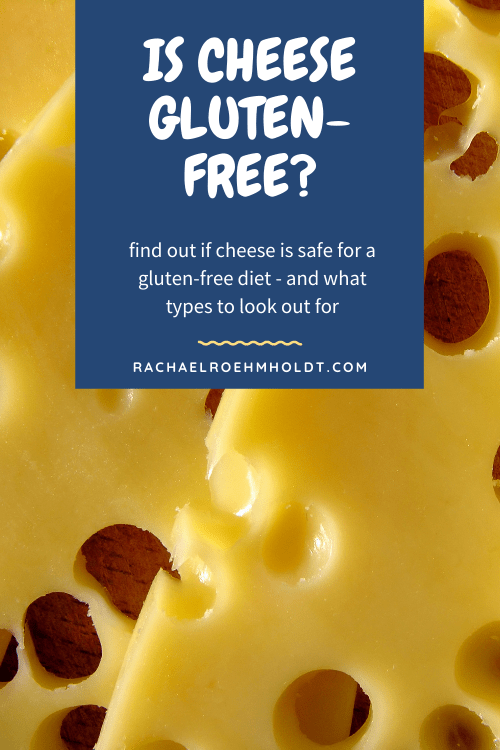
Is cheese gluten-free?
Most cheese is naturally gluten-free, as milk, cultures, rennet, and salt are all gluten-free.
There are some cheeses that may have gluten added to them, especially if they are low salt or fat free cheese. Others have gluten added to them as a stabilizer or preservative. You can find out if the cheese you’re buying contains gluten by looking at ingredients lists.
Be aware that different cheese products have different ingredients, and some may contain vinegar. If they do contain vinegar, you’ll want to be sure that it isn’t malt vinegar. Malt vinegar is derived from wheat and contains gluten.
These cheeses are generally ricotta or queso fresco. However, these cheeses can also be made using lemon juice.
Is cheese dairy-free?
Cheese that is made from animal milk is not dairy-free. In fact, the definition of dairy is anything that is derived from animal milk. Therefore cheese is not dairy-free.
However, if you follow a dairy-free diet, there are a number of dairy-free cheeses available on the market. These are made from plant-based milks, like cashew milk, soy milk, and even coconut milk.
Be aware that some dairy-free cheeses contain gluten, so check ingredients lists for hidden names of gluten before buying.
Read on: 25 gluten-free dairy-free mac & cheese recipes
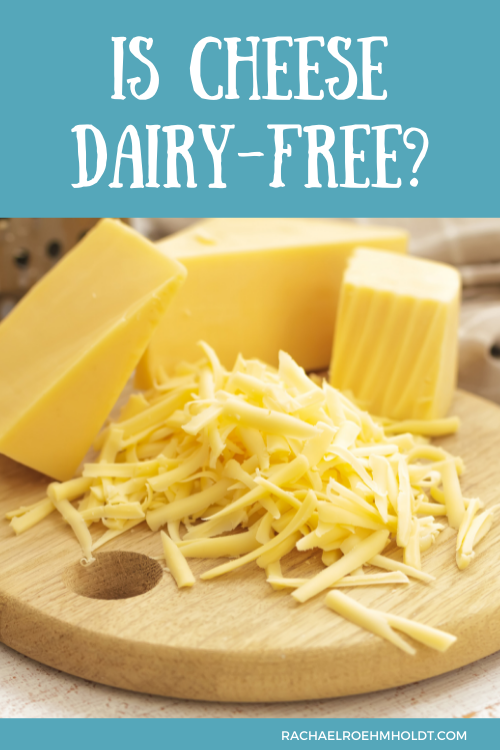
How can gluten get into cheese
Gluten can get into cheese in the form of thickeners, stabilizers, or preservatives. You can also find gluten in cheese if malt vinegar has been used in the process of making the cheese.
Depending on the cheese product that you’re purchasing, you might also find gluten in the form of wheat starch or modified food starch (which may or may not be derived from wheat). These cheese products are usually processed cheese, cheese spreads, or shredded cheese products.
Of course gluten can get into cheese by way of proximity, as well. For example, you could have cheese that gets contaminated with gluten by being near a plate of crackers.
If someone is dipping crackers into a cheese ball, then that cheese ball will very likely contain gluten. If you follow a gluten-free diet, you’ll want to avoid eating cheese where people are handling both crackers or toasts and cheeses next to one another.
You can also get gluten into cheese at a place like a deli counter. If the same machinery is used to cut cheese as deli meat, or is used on the same counter as cutting sandwiches with bread that contains gluten, then this may contaminate your cheese.
Read on: Gluten-free mac and cheese brands
Types of cheese that are generally gluten-free
- Brie
- Cheddar
- Cream cheese
- Feta cheese
- Goat cheese
- Mozzarella
- Parmesan cheese
- Provolone
- Swiss cheese
Cheeses with higher risk of gluten
The places you will want to look for cheese with potential gluten and not from cross contamination are cottage cheese and shredded cheese, as these may contain modified food starch.
Modified food starch can be derived from gluten, corn, or potatoes so you’ll want to be sure that it’s not from wheat before you buy it.
Read on: Is modified food starch gluten-free?
Blue cheese is generally gluten-free, but some people are concerned about where the cultures used for blue cheese are grown, such as on wheat or rye bread. Be on the lookout for a gluten-free label when it comes to buying blue cheese.
Read on: Is blue cheese gluten-free?
Cheese spreads are another place to look for hidden gluten, as thickeners may be used to help with the spreads’ consistency. Read ingredient lists to be certain before you buy it.
Cheesecake is generally not gluten-free as the crust that is used is usually made using graham crackers, which are made with wheat flour.
Breaded cheese products, like mozzarella sticks or jalapeno poppers, are also not gluten-free as they will have a breading on them that contain gluten.
Read on: Is cheesecake gluten-free?
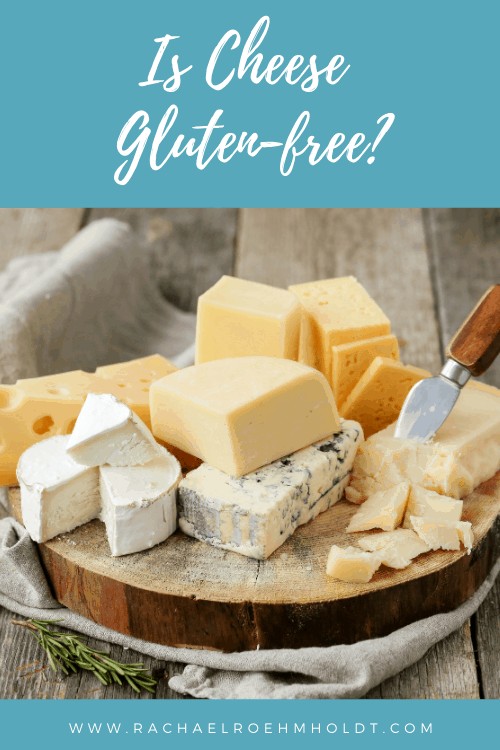
Are my favorite types of cheese gluten-free?
If you love certain types of cheese, you may want to know which are safe and which to avoid. Here are some questions and answers about your favorite cheeses and if they are gluten-free.
Is American cheese gluten-free?
American cheese is highly processed so you want to be sure you’re checking the ingredients list before purchasing. It’s possible that it contains modified food starch or wheat flour, so you’ll want to double check ingredients before you buy.
Is blue cheese gluten-free?
Blue cheese is generally gluten-free, but some people have been concerned about where the cultures for the cheese are grown. Specifically, if these cultures are grown on wheat or rye bread.
For the most part, even if the cultures were grown here, the transfer of gluten would be such a minimal amount. However, if you are celiac or highly sensitive to gluten, then you may consider avoiding blue cheese entirely.
Is cheddar cheese gluten-free?
Cheddar cheese is almost always gluten-free, because it isn’t made with any wheat products and generally no gluten is added to it during processing. The things you’ll want to think about before eating cheddar cheese is what you eat it with or nearby.
For example, a cheese plate may contain crackers with gluten and cross contamination risk may be high. Or if cheddar cheese is used in or on a dish with other gluten ingredients, like pasta or bread, then cheddar cheese will likely have at least trace levels of gluten from cross contamination.
Read on: Is cheddar cheese gluten-free?
Is cream cheese gluten-free?
Most cream cheese is gluten-free, because it does not contain any gluten-containing ingredients. However be on the lookout for any cream cheese and cracker combinations, as the crackers will contain gluten and there may be a risk for cross-contamination.
Read on: Is cream cheese gluten-free?
Read on: Is Philadelphia cream cheese gluten-free?
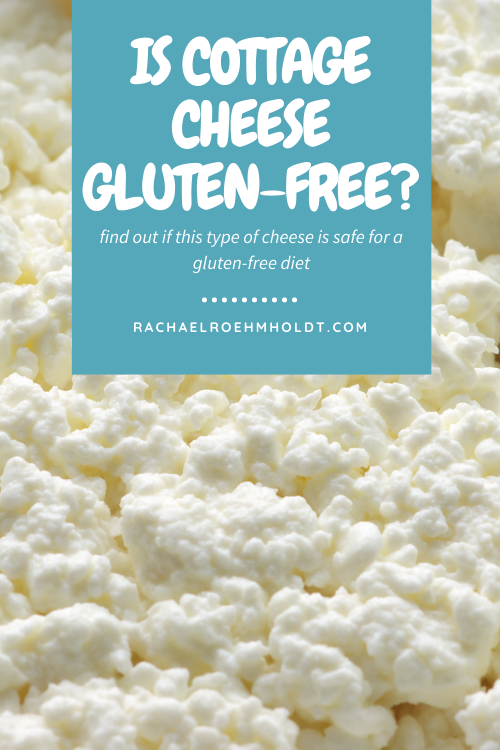
Is cottage cheese gluten-free?
Cottage cheese is generally gluten-free, however sometimes modified food starch or wheat starch is used as a stabilizer to help prevent separation. Check ingredients list before buying.
Read on: Is cottage cheese gluten-free?
Is feta cheese gluten-free?
Feta cheese is naturally gluten-free like many other cheeses. If you have celiac disease or a gluten intolerance, this is one type of cheese that you won’t need to worry much about.
Is gouda cheese gluten-free?
Yes, gouda cheese is gluten-free.
Is mozzarella cheese gluten-free?
Mozzarella cheese is naturally gluten-free. With no added gluten ingredients, this cheese is safe for a gluten-free diet.
Just be sure to check ingredients lists in case your cheese is pre-shredded. Sometimes gluten is added in the form of an anti-caking agent or preservative.
Is parmesan cheese gluten-free?
Most parmesan cheese is gluten-free. This cheese is naturally gluten-free, though you’ll want to be sure that what you’re buying contains no added gluten ingredients.
Any type of mass produced cheese may contain gluten in the form of an anti-caking agent or preservative. If you’re buying something from a package rather than a slice of a cheese wheel, check ingredient lists for hidden gluten ingredients.
Is pepper jack cheese gluten-free?
Yes, pepper jack cheese is gluten-free.
Is ricotta cheese gluten-free?
Ricotta cheese is generally gluten-free, however sometimes vinegar is used in the process of making it. If the vinegar used is malt vinegar, then you’ll want to avoid this product as malt vinegar contains gluten. Also check for stabilizers or thickeners that contain gluten.
Is shredded cheese gluten-free?
Shredded cheese may contain gluten in the form of modified food starch or wheat starch, that’s used to keep the cheese shreds from sticking together.
You can review ingredients lists before buying to be sure there isn’t’ any hidden gluten. Or you can look for a gluten-free label on the packaging.
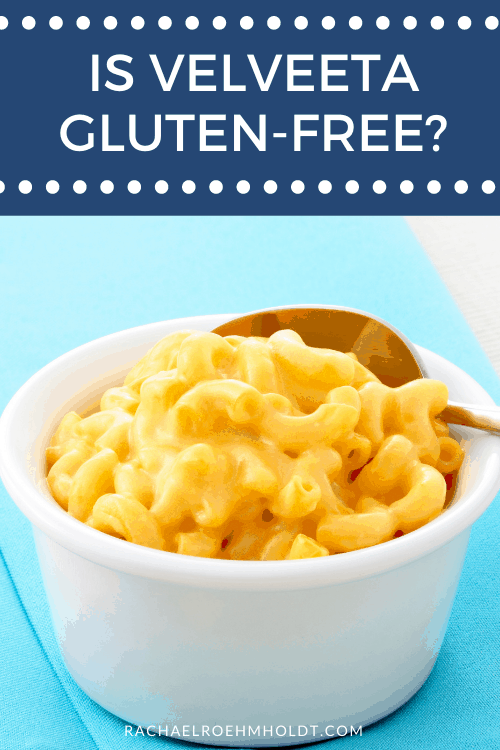
Is Velveeta cheese gluten-free?
Velveeta is a brand under the Kraft company. Kraft is well known for disclosing all the gluten ingredients in their products. As per their website, Velveeta contains no gluten-containing ingredients.
Velveeta cheese is generally considered gluten-free among the larger gluten-free community and even celiacs agree, even without a specific gluten-free label.
Since there is no gluten-free label on the product, it’s possible that there is a potential for gluten cross contamination.
Read on: Is Velveeta gluten-free?
Check ingredients on these cheeses:
- Shredded cheese
- Cottage cheese
- Cheese spreads
- American cheese
- Blue cheese
- Cheese spray
- Dairy-free cheese
- String cheese
- Cheese dips
Look for the hidden names of gluten on ingredient lists
Check ingredients lists for any obvious or hidden sources of gluten, such as wheat flour, malt vinegar, and modified food starch.
One of my little secrets is that I carry around a copy of my GFDF Take Along Cards so that I always have a point of reference when I can sneak a peek at the ingredient list of a food.
>> Get your copy of the GFDF Take-Along Cards to make this easy on you.
I hope if you’ve been wondering if cheese is gluten-free that this post has helped you find the answer you’re looking for.
As a general rule, most cheese is gluten-free, and there are just a few processed cheese products to be on the lookout for. Review ingredients lists, so you know what you’re buying is safe for your gluten-free diet.
If you loved this post, I hope that you’ll share it with your friends on Facebook and pin it for future reference on Pinterest.
Love this post? You might also want to check out these!
Find out if your favorite foods and ingredients contain gluten with these posts!
Which whole grains are gluten-free?
Find out which whole grains are gluten-free and safe to eat on a gluten-free diet. Learn the 12 whole grains to stock your gluten-free pantry with in this article.
Is Jello gluten-free?
Jello is the wiggly, jiggly, transparent treat that most of us enjoyed as kids. If you eat a gluten-free diet, you might be wondering if it’s gluten-free. Find out the details and the answer to that question in this post.
Are marshmallows gluten-free?
If you’re on a gluten-free diet, you may be wondering: are marshmallows gluten-free? Find out if there is gluten in marshmallows and 5 brands of marshmallows are that are gluten-free in this post.
Are Rice Krispies gluten-free?
Are you a fan of Rice Krispies? If so, you may have wondered if rice krispies are gluten-free, especially if you follow a gluten-free diet. Find out the details and the answer to that question in this post.
Is soy sauce gluten-free?
Is soy sauce gluten-free? Find out in this article where I share what your options for soy sauce are on a gluten-free diet.
Is Quinoa Gluten-free?
Is quinoa gluten-free? If you follow a gluten-free diet, you may have been wondering if this food is safe for you to eat. In this post, you’ll learn what quinoa is, how to enjoy it, and if it’s good for a gluten-free diet.
Is Rice Gluten-free?
If you’re following a gluten-free diet, you may be wondering if rice is gluten-free and safe to eat. In this post, we’ll discuss the different types of rice and whether or not you should add them to your regular rotation on a gluten-free diet.
Is Cornstarch Gluten-free?
Find out if cornstarch is safe for a gluten-free diet, the health benefits, and discover some gluten-free cornstarch brands.
Is Honey Gluten-free?
Find out if honey is safe for a gluten-free diet, the health benefits, and discover some gluten-free honey brands.
Are Oreos gluten-free? Are Oreos dairy-free?
If you love Oreos and avoid gluten or dairy for health reasons, you may be wondering if these favorite cookies are gluten-free or dairy-free. In this post, we’ll go through everything you need to know about Oreos and if you’ll want to include them in your diet if you have allergies or food intolerances.
Is corn gluten-free?
Is corn gluten-free? Find out if corn contains gluten, if different types of corn contain gluten, and if this ingredient is safe for a gluten-free diet.
Is oatmeal gluten-free?
If you love oats and oatmeal for breakfast or adding oats to your baked goods, you might be wondering if these are safe for a gluten-free diet. Find out in this post!
Are Doritos gluten-free?
Do you follow a gluten-free diet and wonder if Doritos are gluten-free? This post will give you all the information you need to know to make an informed decision on whether to enjoy these or not if you’re gluten free.
Is coffee gluten-free?
Do you love coffee and just getting started with a gluten-free diet? This post will give you all the information you need to know about gluten and coffee.
Is Ice Cream Gluten-free?
Are you an ice cream lover? Find out if ice cream is gluten-free, which brands are safe for a gluten-free diet, and how to order ice cream out.
Is Cream Cheese Gluten-free?
Wondering if cream cheese is safe for your gluten-free diet? Discover what cream cheese is made of, what brands are gluten-free, and things to be aware of when eating cream cheese on a gluten-free diet.
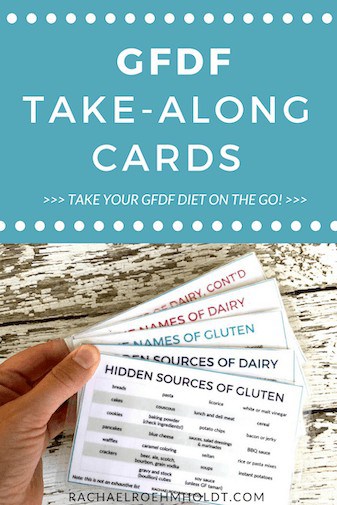
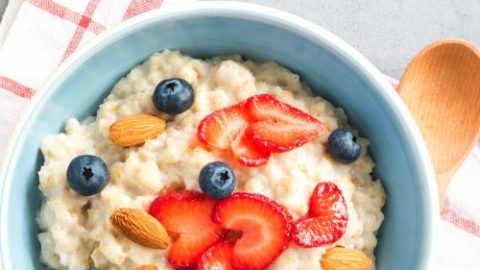
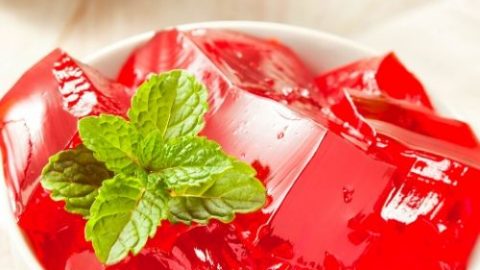

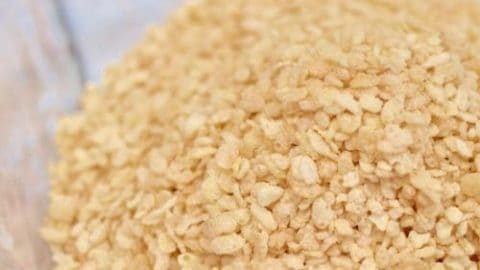

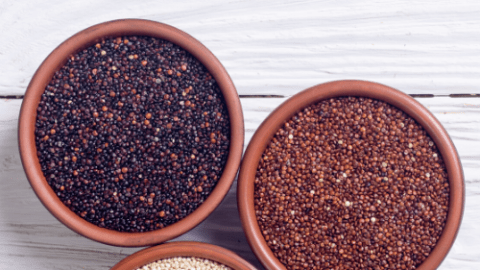
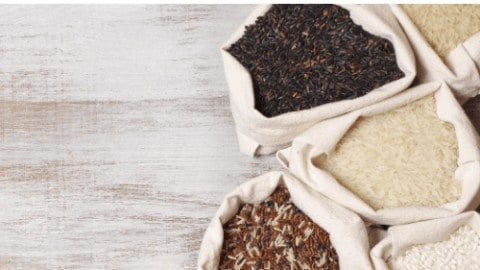
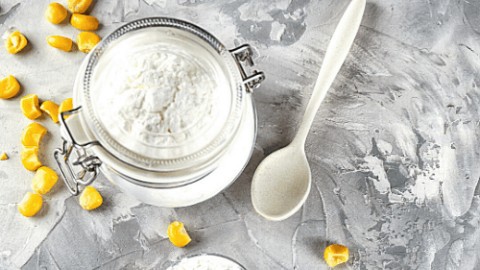

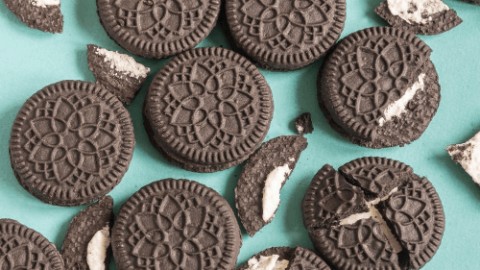
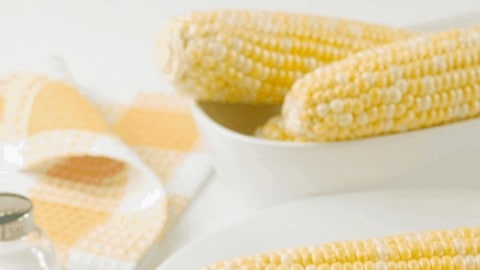
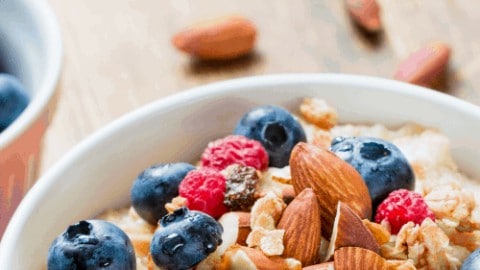
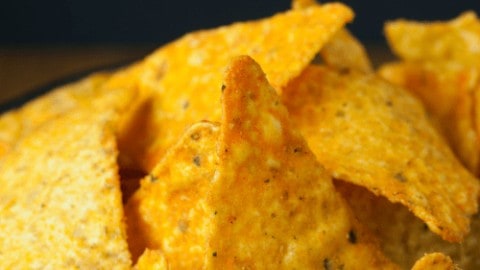


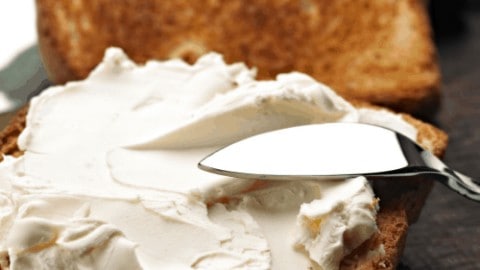
Leave a Reply